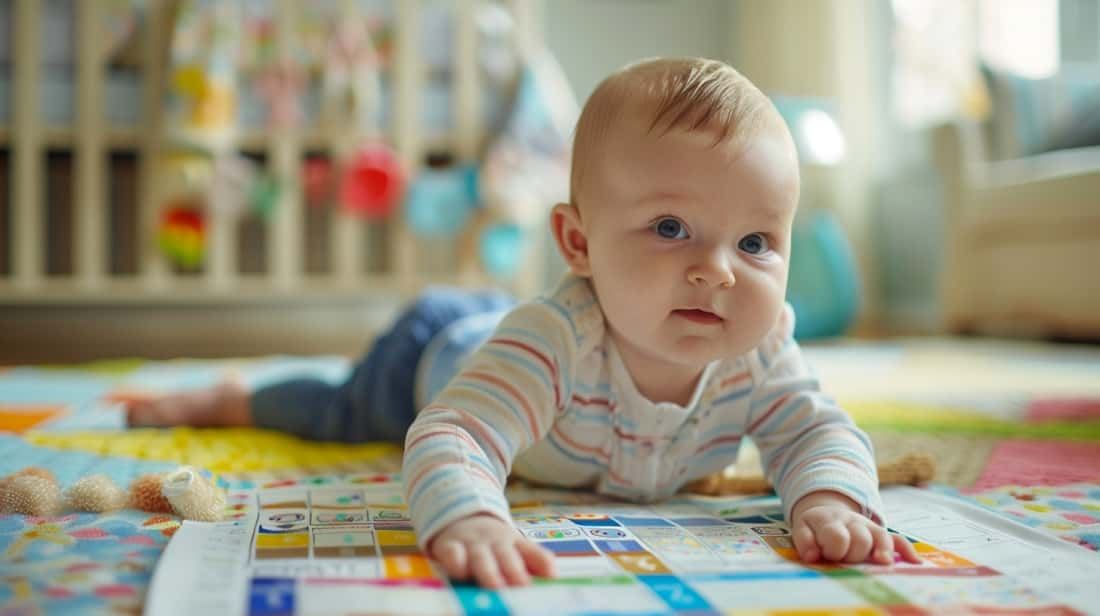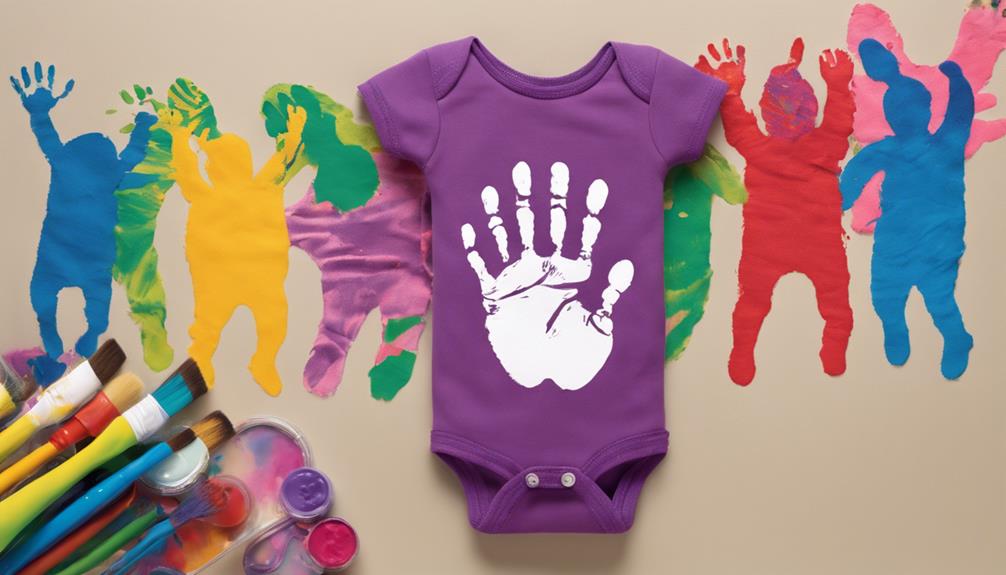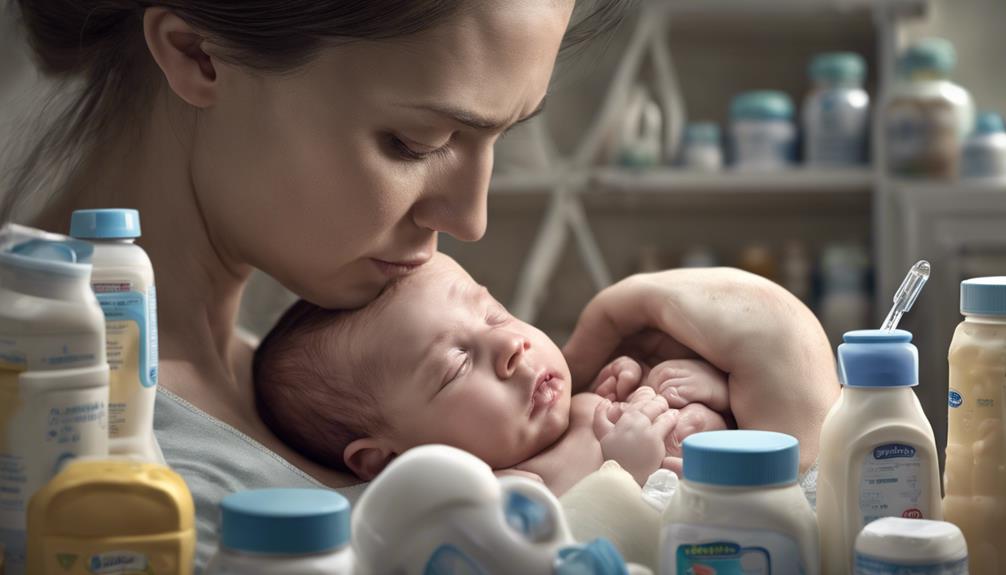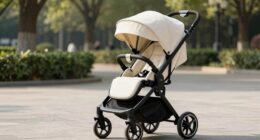If you’ve ever witnessed your young child dealing with hiccups after a meal, you understand how upsetting it can be.
But fear not, as there are simple and effective ways to help ease those hiccups and bring comfort to your newborn.
By following some gentle techniques and understanding the underlying causes, you can navigate this common occurrence with confidence.
Remember, a calm and informed approach can make all the difference in soothing your baby's post-feeding hiccups.
Key Takeaways
- Gentle burping techniques can help alleviate baby hiccups after feeding.
- Holding newborns in soothing positions like upright or on their tummy can ease hiccups.
- For breastfed babies, proper latch and minimizing air intake are crucial for reducing hiccups.
- Bottle-fed babies benefit from burping during and after feedings, selecting the right bottle nipple, and feeding in an upright position.

Comfy Cubs Muslin Burp Cloths 20" x 10", Pack of 10 – Large, 6-Layer, Ultra Absorbent 100% Cotton for Baby Drool and Messes – Soft, Safe & Gentle Baby Burp Cloths for Boys & Girls – Multi
Soft and Gentle Baby Burp Cloths: Made from 100% breathable muslin cotton, these burping cloths are lightweight, gentle,…
As an affiliate, we earn on qualifying purchases.
As an affiliate, we earn on qualifying purchases.
Causes of Baby Hiccups
Wondering what causes your baby to get those cute but sometimes bothersome hiccups? Baby hiccups often occur when your little one swallows air during feedings, which can lead to spasms of the diaphragm. Factors like an immature digestive system, sudden temperature changes, overfeeding, and gastroesophageal reflux can also trigger hiccups in newborns.
It's common for hiccups to be more frequent after feeding and last for a few minutes to an hour. While most cases of hiccups are harmless and tend to decrease with time, prolonged hiccups might indicate an underlying issue. However, in many instances, these hiccups resolve on their own without the need for medical intervention.
Understanding the potential causes of your baby's hiccups can help you navigate this common occurrence with reassurance and care.

Cococu Baby Head Pillow for Newborn, Soft Infant Head Support with Organic Cotton Cover, Breathable Ergonomic Baby Neck Support for Car Seat, Stroller & Bassinet, White
Soft & Comfortable: Ultra-soft, breathable fabric with gentle padding provides cozy baby head and neck support for everyday…
As an affiliate, we earn on qualifying purchases.
As an affiliate, we earn on qualifying purchases.
Effective Burping Techniques

To help alleviate your baby's post-feeding discomfort, mastering effective burping techniques is crucial in releasing trapped air from their stomach. Here are some tips to help you burp your baby effectively:
- Gentle Patting: Place your baby in an upright position against your shoulder or on your lap. Gently pat their back in a rhythmic motion to help release trapped air from their stomach.
- Back Rubbing: Another technique is to rub your baby's back in an upward motion. This gentle rubbing can also assist in bringing up any air bubbles that may be causing discomfort.
- Upright Position: Holding your baby upright after feeding can help prevent air from getting trapped in their stomach. Be sure to support their head and neck while keeping them in an upright position for a few minutes.
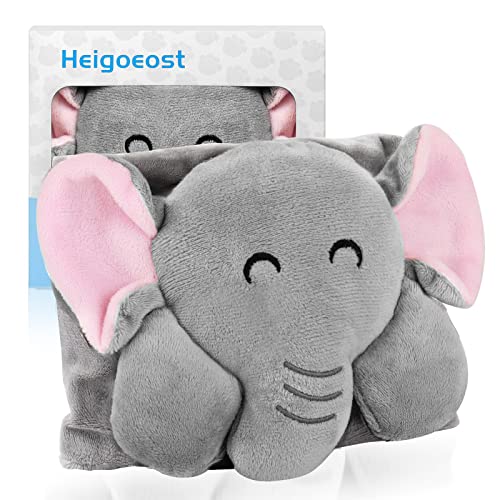
Baby Colic and Gas Relief – Heigoeost Heated Tummy Wrap for Newborns Belly Relief by Soothing Warmth, Baby Heating Pad Swaddling Belt Relief & Soothe Gas, Colic and Upset Stomach for Fussy Infants
THE TRADITIONAL WAY TO RELIEVE COLIC AND GAS FOR NEWBORNS – Hot compresses on the baby's tummy is…
As an affiliate, we earn on qualifying purchases.
As an affiliate, we earn on qualifying purchases.
Soothing Positions for Newborns
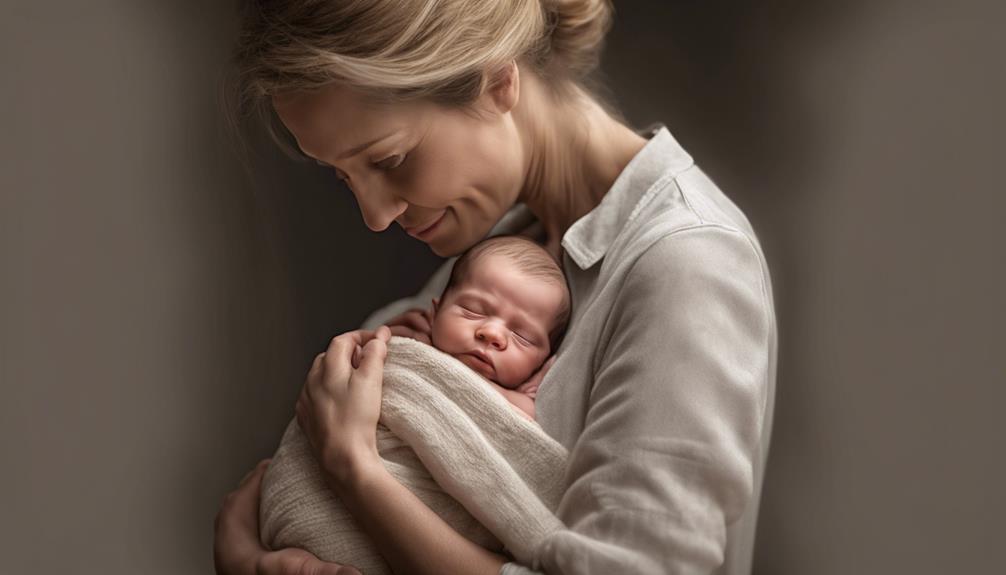
If your baby still seems uncomfortable after burping, trying soothing positions can help alleviate their hiccups and post-feeding discomfort. Here are some positions you can try to help your newborn feel better after feeding:
| Position | Description |
|---|---|
| Upright | Hold your baby upright to aid digestion with gravity. |
| Tummy | Place your baby on their tummy across your lap and pat gently. |
| Chin Support | Support your baby's chin with your palm while lying on their back. |
| Back Massage | Gently massage your baby's back in an upward motion. |
| Rocking | Rock your baby in a calming motion or sway gently. |
These positions can provide comfort to your little one and may help reduce hiccups. Experiment with each one to see what works best for soothing your newborn after feeding. Remember to always ensure your baby's head and neck are supported properly in these positions for their safety and comfort.

Motherlove Birth & Baby Oil (2 oz) Gentle Lavender-Infused Oil for Perineal, Labor & Baby Massage—Non-GMO, Organic Herbs
Labor & Perineal Massage Oil: Birth & Baby Oil is a soothing perineal and labor massage oil.
As an affiliate, we earn on qualifying purchases.
As an affiliate, we earn on qualifying purchases.
Tips for Breastfed Babies

For breastfed babies, ensuring a proper latch during feeding is key to reducing air intake and minimizing the occurrence of hiccups. Here are some tips to help alleviate hiccups for your little one:
- Burp Your Baby: Remember to burp your breastfed baby after each feeding session. This can help release any trapped air, reducing the chances of hiccups.
- Offer Short, Frequent Nursing Sessions: Opt for shorter, more frequent nursing sessions to prevent your baby from swallowing excess air. This can also aid in digestion and decrease the likelihood of hiccups.
- Keep Baby Upright: After feeding, keep your baby upright for about 20-30 minutes. This position can help gravity assist in the digestion process, preventing hiccups and discomfort.
Strategies for Bottle-Fed Babies

Help your bottle-fed baby avoid hiccups by implementing these practical strategies during and after feedings. Start by burping your baby during and after each feeding session to release any trapped air that could lead to hiccups. Keeping your baby in an upright position while feeding can aid digestion and reduce the chances of hiccups occurring.
Make sure to select the right bottle nipple size and guarantee a proper latch to minimize the intake of air, which can help prevent hiccups. Additionally, feeding your baby smaller amounts at a moderate pace can prevent overfeeding and reduce the likelihood of hiccups caused by stomach distention.
After feeding, try using gentle back rubs or patting your baby's back to help soothe and alleviate any hiccups that may arise. By following these strategies, you can help your bottle-fed baby have a more comfortable feeding experience and minimize the occurrence of hiccups.
Frequently Asked Questions
How Do I Stop My Newborn From Hiccuping After Feeding?
To stop your newborn from hiccuping after feeding, try burping, holding upright for 20-30 minutes, offering a pacifier, and creating a calm environment. Consider gripe water or simethicone drops under medical guidance for persistent hiccups.
How Do You Settle a Newborn's Hiccups?
To settle your newborn's hiccups, try burping during and after feeding. Offer a pacifier to suck on. Keep the environment calm. Hold your baby upright after feeding. Consult your doctor about gripe water or simethicone drops for persistent hiccups.
Is It OK to Lay My Newborn Down With Hiccups?
It's okay to lay your newborn down with hiccups. Hiccups are common and won't harm them. If hiccups persist or cause discomfort, try keeping them upright to help prevent reflux. Remember, hiccups usually go away on their own.
What Position Is Best for Newborn Hiccups?
When soothing newborn hiccups after feeding, the best position is holding your baby upright for 20-30 minutes. This helps air bubbles move and prevents reflux. Supporting their head and neck is essential for proper alignment and digestion.
Conclusion
You've now learned how to effectively soothe your newborn's hiccups after feeding. Remember, hiccups are like passing clouds in the sky – temporary and harmless.
By utilizing the techniques provided in this guide, you can help your little one find relief and comfort. Trust your instincts, create a calm environment, and seek medical advice if needed.
Your baby will be hiccup-free in no time!

